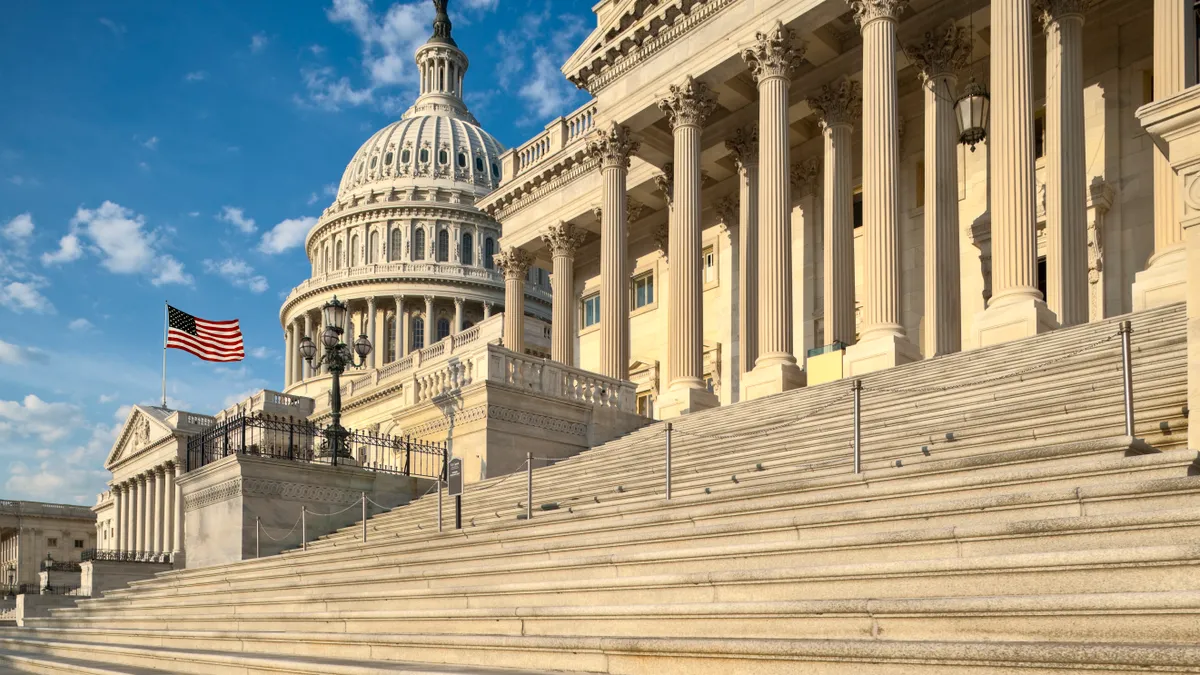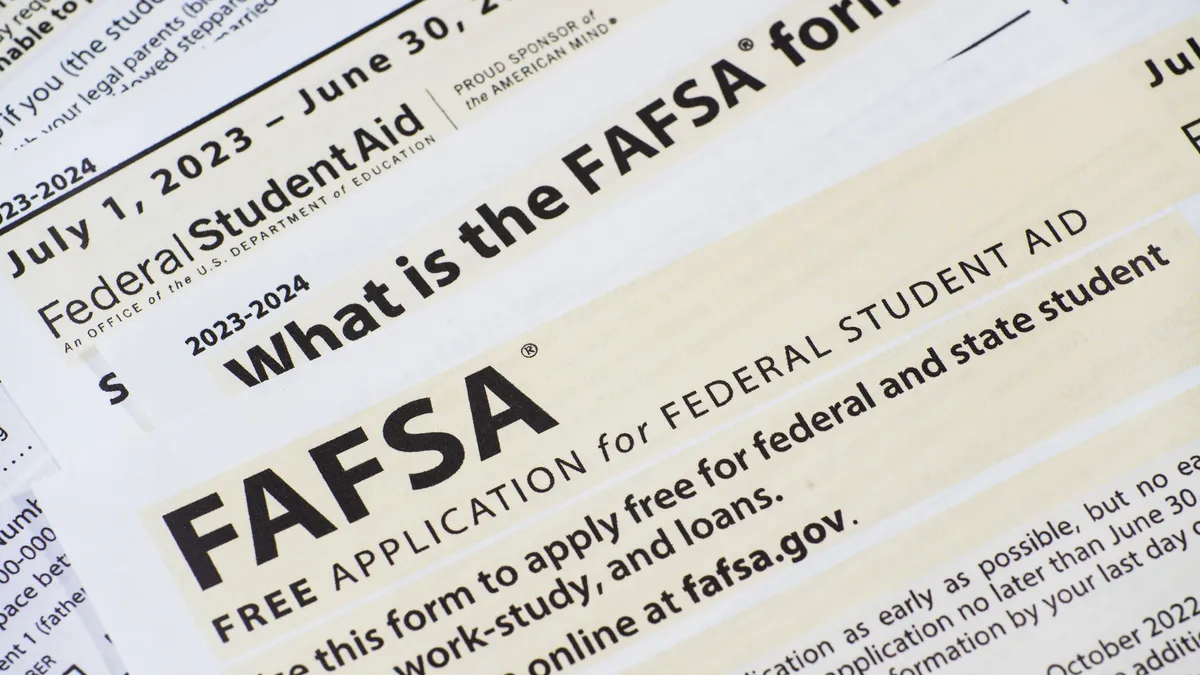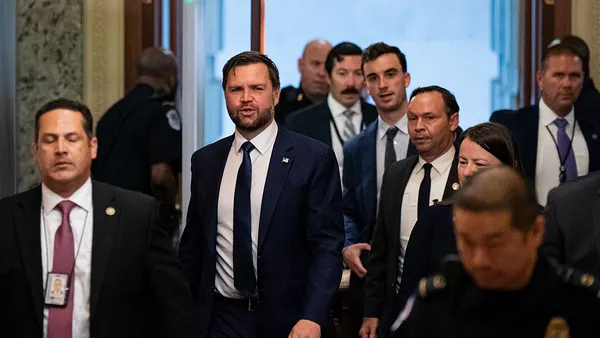U.S. Education Secretary Miguel Cardona told senators Tuesday that he acknowledges frustration from students, families and colleges over the botched roll out of the Free Application for Federal Student Aid and said he expects the department to have an on-time Oct. 1 launch for 2025-26 FAFSA submissions.
In the meantime, Cardona said it is the department's priority to work with students, families, offices for high school counseling and college financial aid offices to ensure students can successfully complete the form for the 2024-25 school year. Colleges use FAFSA applicant information to determine their financial aid packages.
"The rollout of the federal FAFSA has been riddled with delays and challenges and it's been something that we've prioritized at the Department of Education. We're doing everything everyday to make it right," Cardona told the Senate Appropriations Subcommittee for Labor, Health and Human Services, Education, and Related Agencies.
Cardona was scheduled to talk about the Biden administration's proposed fiscal year 2025 budget for education but spent much of the nearly 90-minute hearing discussing FAFSA and pro-Palestine protests and antisemitic rhetoric on college campuses.
The updated FAFSA form was supposed to make applying for financial aid easier for students and families. But because of a delayed launch and technical glitches, completion rates are down compared to the year before, and there have been miscalculations and data errors.
"I know you and your staff are working hard to fix these issues, but I cannot emphasize enough how important it is that we get this right," said Subcommittee Chair Tammy Baldwin, D-Wis. "Accessing this aid can mean the difference between someone being able to go to college or not."
Wednesday, May 1 is college decision day, but many higher education institutions have pushed back those commitment deadlines due to the delays with federal financial aid information.
Data from the Education Department — as of April 25 — shows the rate of FAFSA completions from high school seniors is down in every state compared to the 2023-24 form. In some states like California, Florida and West Virginia, submission rates are down 25% or more year-over-year.
High school college counseling staff have ramped up supports and communications with high school seniors and their families as a result of the confusion.
Cardona said the Education Department is involved in daily support to families and students, as well as to college leaders.
"There's no excuse," Cardona said.
"Our students deserve better, and I'm committed to making sure the process works to make sure that more students have access to higher education."
Free speech and campus safety
Several senators asked Cardona what he and the Education Department were doing to keep college students safe during pro-Palestine protests that erupted this month. While lawmakers and the education secretary said they support peaceful protests and free speech rights, they called antisemitic rhetoric and unsafe environments on college campuses "unacceptable."
"What's happening on our campuses is abhorrent," Cardona said. "Hate has no place on our campuses, and I'm very concerned with the reports of antisemitism."
He said the Education Department has 137 open cases investigating potential violations under Title VI of the Civil Rights Act, regarding "national origin discrimination involving religion" both at the K-12 and higher education levels.
The FY 25 proposed budget requests an additional $22 million increase over FY 2023 levels to add Office for Civil Rights enforcement staff.
Campus protesters from different universities are asking for colleges to call for a ceasefire in Gaza and to divest from companies linked to Israel or that profit in some way from the war with Hamas.
Cardona said that no one from the Education Department is present at New York's Columbia University, where student protesters took over a campus building on Tuesday. However, the agency has increased the number of communications to college campuses — including in regard to their legal obligations for protecting students, as well as best practices, he said.
Shelley Moore Capito, R-W.Va., and subcommittee ranking member, suggested the Education Department post on its website a statement from the University of Florida, in response to arrests during campus protests there.
It said in part, "This is not complicated: The University of Florida is not a daycare, and we do not treat protesters like children — they knew the rules, they broke the rules, and they'll face the consequences."
Chronic absenteeism and mental health
Senators also raised concerns about high levels of student chronic absenteeism and mental health challenges. The FY 25 proposed budget calls for a new $8 billion Academic Acceleration and Achievement grant program aimed to help states and school districts boost attendance, tutoring and summer learning opportunities.
The budget strives to increase the number of school-based counselors, psychologists, social workers and other mental health providers by dedicating $216 million for K-12 mental health programs. About $200 million of that would come from the Bipartisan Safer Communities Act, passed by Congress in 2022.
Sen. Chris Murphy, D-Conn., said chronic absenteeism is a "concerning development," and that there is a "direct line between kids who are chronically out of school and at-risk behaviors."
Cardona said the proposed budget reflects the priority the department is making to address chronic absenteeism. Additionally, the department is working with school, district and state leaders, as well as teacher organizations, on strategies for school engagement.
"After the pandemic, it has gotten worse," he said, adding that in many states, absenteeism is "much worse now" than before the pandemic.





















